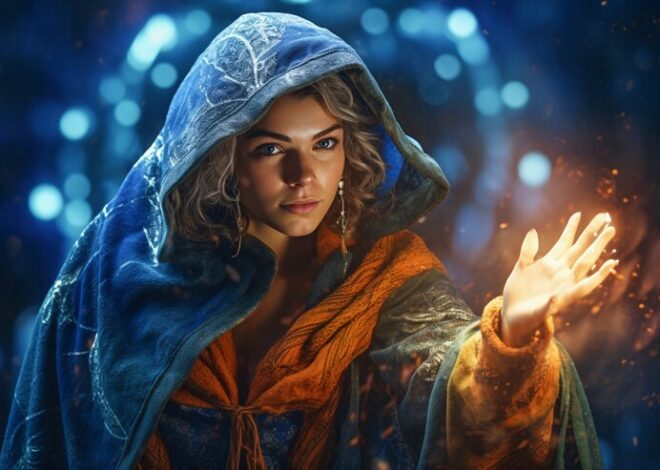
The Power of Online Platforms in Shaping Celebrity Culture
Online platforms have undeniably played a significant role in shaping celebrity culture. In this digital age, social media platforms such as Instagram, Twitter, and YouTube have given rise to a new breed of celebrities known as influencers. These individuals have successfully amassed large followings by capitalizing on their expertise, charm, or unique personalities. With millions of followers and the ability to reach a diverse global audience, these influencers have become powerful trendsetters in various industries, from fashion and beauty to fitness and travel. Through carefully curated content and strategic collaborations, they have the power to influence consumer behaviors, shape popular culture, and even drive sales.
Furthermore, online platforms have also democratized fame by providing opportunities for ordinary individuals to gain recognition and become celebrities in their own right. The rise of user-generated content platforms like TikTok and Vine has allowed talented individuals to showcase their skills and creativity to a wide audience. These platforms have transformed ordinary people into overnight sensations, providing instant fame and launching lucrative careers. As a result, aspiring musicians, comedians, dancers, and other talents no longer have to go through traditional gatekeepers such as record labels or casting directors to find success. The power to shape celebrity culture has become more accessible and decentralized, as anyone with an internet connection and a talent can rise to stardom with the right content and platform strategy.
The Rising Popularity of Influencer Marketing
In today’s digital age, influencer marketing has become an increasingly popular strategy for brands to connect with their target audience. By leveraging the popularity and influence of social media personalities, companies are able to reach a wider and more engaged consumer base. Through strategic partnerships, these influencers have the ability to build trust and credibility with their followers, making them valuable assets for brands seeking to promote their products or services.
One of the main reasons for the rising popularity of influencer marketing is the shift in consumer behavior. Traditional advertising methods, such as television commercials and print ads, are no longer as effective in capturing the attention of consumers. With the rise of ad-blocking software and the ability to skip or ignore advertisements, brands have had to find new ways to connect with their target audience. Influencer marketing provides a more authentic and relatable approach, as social media influencers often share personal experiences and recommendations, making their content more engaging and trustworthy for their followers.
The Role of Social Media in Creating Celebrity Status
Social media has undeniably transformed the way celebrities are created and celebrated. In this digital age, platforms such as Instagram, YouTube, and TikTok have become breeding grounds for aspiring stars to showcase their talents, attract a loyal following, and ultimately achieve celebrity status. The accessibility and reach of social media allow individuals to bypass traditional gatekeepers of fame, such as talent agents and casting directors, enabling them to connect directly with a global audience.
The allure of social media lies in its ability to democratize the path to fame. Anyone with a smartphone and an internet connection can share their creativity, whether it be through viral dance videos, comedic sketches, or heartfelt musical performances. Social media platforms provide a level playing field where talent can shine, regardless of background or connections. This has given rise to a new wave of self-made celebrities who have garnered immense followings and lucrative opportunities solely through their online presence.
The Impact of Social Media in Redefining Fame
Social media has revolutionized the concept of fame, offering a new avenue for individuals to gain recognition and popularity. In today’s digital age, anyone with access to the internet and a social media account has the potential to become a celebrity. With platforms like Instagram, TikTok, and YouTube, individuals can showcase their talents, creativity, and unique perspectives to a global audience, bypassing traditional gatekeepers and media outlets. This democratization of fame has allowed for a diverse range of voices and talents to rise to prominence, challenging the traditional definitions of what it means to be famous.
The rise of social media has also disrupted the traditional celebrity-fan dynamic, enabling a level of direct and immediate interaction that was previously unthinkable. Social media platforms provide a space for fans to connect with their favorite celebrities, allowing for real-time engagement, conversations, and even collaborations. Celebrities now have the ability to directly communicate with their fan base, creating a sense of intimacy and connection that transcends geographical boundaries. This has not only deepened the relationship between celebrities and their fans but has also provided a platform for fans to actively participate in shaping the careers and public images of their favorite personalities.
How Social Media Has Revolutionized Celebrity Fan Interactions
Social media has completely revolutionized the way fans interact with their favorite celebrities. In the past, fans would have to rely on magazines, television appearances, or the occasional meet-and-greet to get a glimpse into the lives of their idols. However, with the rise of social media platforms such as Instagram, Twitter, and TikTok, fans now have direct access to their favorite celebrities like never before.
Through social media, fans can follow their favorite celebrities, interact with them through comments and likes, and even send direct messages. This has created a sense of closeness and connection between fans and their idols that was not possible before. Fans can now get real-time updates on their favorite celebrities’ lives, such as behind-the-scenes content, personal thoughts, and even exclusive glimpses into their daily routines. As a result, fans feel more involved and engaged in the lives of their idols, fostering a sense of loyalty and admiration. The power dynamics between fans and celebrities have shifted, blurring the lines between celebrity and fan.
The Influence of Social Media on Celebrity Image and Persona
In today’s digital age, social media platforms have significantly transformed the way celebrities manage and cultivate their image and persona. With the rise of Instagram, Twitter, and TikTok, celebrities now have unprecedented access to their fans, allowing them to directly shape and control the narrative surrounding them. Through carefully curated posts and strategic online interactions, celebrities can present a carefully crafted image that aligns with their public persona.
Gone are the days when press releases and traditional media outlets were the primary means for celebrities to communicate with their audience. Social media has given them a powerful tool to directly connect with their fans, bypassing any intermediaries. This enables celebrities to have more control over how they are perceived and allows them to engage in real-time conversations with their followers. By posting personal glimpses into their lives, sharing behind-the-scenes moments, and expressing their thoughts and opinions, celebrities can create a relatable and authentic image, thereby strengthening their connection with their fan base.
The Effect of Social Media on Celebrity Privacy and Scandals
Social media has undeniably brought about a significant impact on celebrity privacy. In the era of social media, it has become increasingly challenging for celebrities to maintain a sense of personal space and privacy. With the advent of platforms like Facebook, Instagram, and Twitter, celebrities’ every move is subject to scrutiny and public judgment. From paparazzi photos to leaked personal information, social media has allowed an unprecedented level of intrusion into celebrities’ lives, blurring the lines between their public personas and private struggles.
Moreover, the rise of social media has also amplified the potential for scandals to spread like wildfire. Any misstep or controversial statement made by a celebrity can quickly be shared and discussed by millions of users within minutes. Scandals that would once have been confined to tabloid headlines can now explode on social media, reaching a vast audience and gaining momentum at an alarming rate. The speed and scale at which information spreads on social media can have devastating consequences for a celebrity’s image and reputation, making it increasingly difficult to recover from public backlash.
The Connection between Social Media and Celebrity Endorsements
In today’s celebrity culture, social media has become a powerful tool for celebrities to connect with their fans and promote products or brands through endorsements. With the rise of platforms such as Instagram, Twitter, and Facebook, celebrities now have a direct line of communication with their followers, allowing them to showcase a more personal and relatable side. This, in turn, has opened up a new avenue for brands and companies to tap into the influence and reach of these celebrities.
Social media platforms provide a unique opportunity for celebrities to endorse products in a way that feels both authentic and organic. Unlike traditional advertising methods, where celebrities appear in commercials or print ads, social media allows for a more intimate and interactive approach. Celebrities can seamlessly incorporate product placements into their posts or share their experiences and reviews in real-time, making it feel like a genuine recommendation from someone they admire. This has proven to be incredibly effective, as fans are more likely to trust the endorsement and be influenced by their favorite celebrity’s choice. As a result, social media has become an essential marketing strategy for brands and an additional revenue stream for celebrities. The connection between social media and celebrity endorsements is a testament to the evolving landscape of celebrity culture and the power of online platforms.
The Role of Social Media in Expanding Opportunities for Aspiring Celebrities
Social media has undeniably played a significant role in expanding opportunities for aspiring celebrities. In the past, breaking into the entertainment industry required a combination of talent, luck, and connections. Now, with the advent of online platforms, aspiring actors, musicians, and influencers have the ability to showcase their skills and build a fanbase from the comfort of their own homes.
One of the most notable ways social media has expanded opportunities for aspiring celebrities is through the creation of viral content. Platforms like TikTok and YouTube have given rise to overnight sensations, where individuals can gain millions of followers and reach a level of fame once reserved for traditional celebrities. By creating and sharing captivating content, aspiring talents have the chance to attract the attention of industry professionals, casting directors, and even potential brand partnerships. This accessibility has transformed the entertainment landscape, as it levels the playing field and opens doors for those who might not have had the means to pursue traditional avenues of stardom.
The Future of Celebrity Culture in the Era of Social Media
As social media continues to evolve and shape the landscape of our world, it is undeniable that the future of celebrity culture will be greatly influenced by these online platforms. With the rise of Instagram, Twitter, and TikTok, celebrities have more direct access to their fans than ever before. This enables them to cultivate their own personal brands and create a sense of intimacy with their followers.
In the era of social media, the barriers to entry for aspiring celebrities have also been significantly lowered. With just a smartphone and a strong online presence, anyone can potentially become a viral sensation or gain a dedicated following. This has opened up a new realm of opportunities for individuals who may not have had the traditional means to break into the industry. However, with this democratization of fame comes the challenge of standing out in a saturated market and maintaining relevance amidst the constant influx of content.




